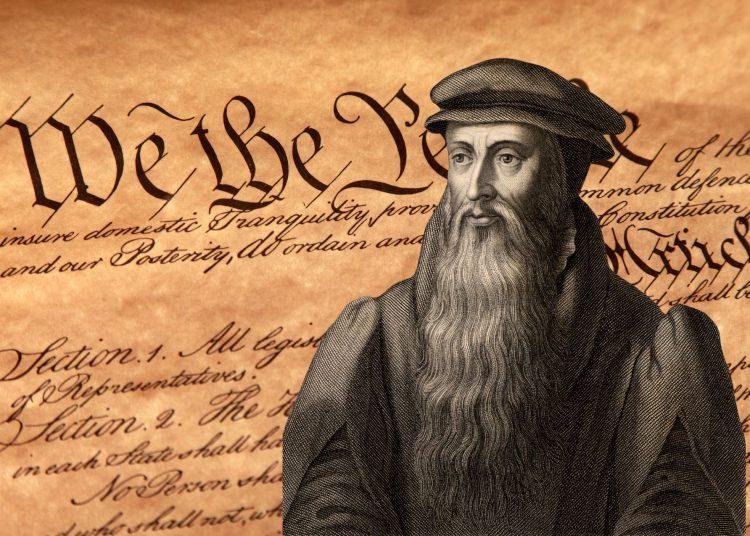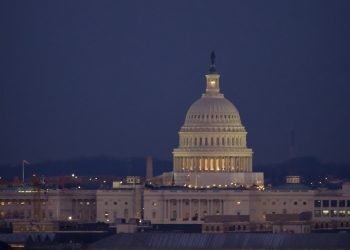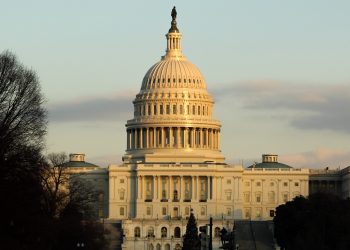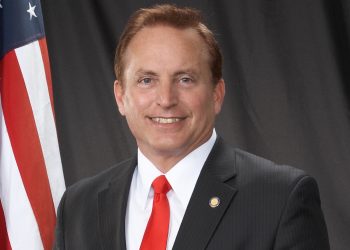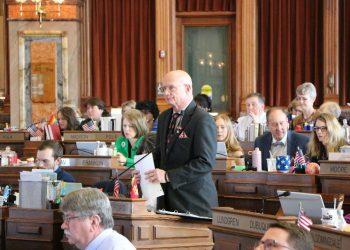In the Institutes of the Christian Religion theologian John Calvin outlined the major tenants of Reformed theology, which became known as the Doctrines of Grace or “Calvinism.” The Institutes serve as the most important commentary on the Bible. Calvin’s Institutes was, and remains today, a foundational text of the Reformation. Further, Calvin’s theology went beyond just Reformed Biblical interpretation, but it impacted political philosophy. David W. Hall argues that Calvin’s theology contributed greatly to the ideas of republicanism, limited government, separation of powers, civil liberties, among others which are considered pillars of freedom in Western Civilization. This was especially apparent when considering the development of American constitutionalism and the influence of “Calvinism” on the American Founding. In the Institutes, one of the political issues that Calvin addressed was the necessity for a prudent and moral approach to taxation.
“Civil Government” is the concluding chapter in Calvin’s Institutes, which outlined his Biblical view of government, liberty, the responsibility of public service, and the powers of government. The Doctrines of Grace were woven throughout Calvin’s view of “civil government.” This was especially true of two foundational doctrines of “Calvinism,” which included the sovereignty of God and total depravity.
Regarding taxation, Calvin argued that governments had the authority to collect taxes. Revenue was needed to meet the “public expenses” or the obligations of government. Just as with the use of force or waging war, Calvin argued that officials had to be prudent in their use of the taxing power. Calvin stated that it was immoral for officials to use taxes “for the magnificence of their household,” and excessive taxation was “tyrannical extortion.” Therefore, Calvin warned public officials to not only be prudent in taxation but avoid wasteful spending and “expensive luxury.” Both public officials and taxpayers, Calvin argued, needed to approach this with “a pure conscience before God.”
Public officials had the responsibility and obligation to not only uphold the law, but also encourage the faith of the people, individuals also had responsibility to obey. As noted above individuals had an obligation to pay taxes as long as it was within the moral boundary. Calvin argued that “order itself is worthy of such honor and reverence,” and public officials should “receive reverence out of respect for their lordship.” “Subjects, Calvin noted, should prove their obedience toward them, whether by obeying their proclamations, or by paying taxes, or by undertaking public offices and burdens which pertain to the common defense, or by executing any other commands of theirs.”
Calvin’s view of obedience gets complicated because he not only argued that obedience is warranted to an unjust government, but he also defended the right to resist or even nullify or secede from an abusive government. A government that abuses their authority either by corruption, disregarding laws, lining their own pockets from abusing the taxing authority (Calvin described this as draining “the common people of their money”), or other wrongs will occur because of original sin. Calvin argued that this might occur as a judgement from God when the people fall away from His Word. God is sovereign and, in His sovereignty, God appoints those in authority. As Calvin argued:
Indeed, he says that those who rule for the public benefit are true patterns and evidences of this beneficence of his; that they who rule unjustly and incompetently have been raised up by him to punish the wickedness of the people; that all have been endowed with that holy majesty with which he has invested lawful power.
Calvin did not advocate revolution, but God in His sovereignty could use the people to punish governments that abuse their authority. One example of this was the American Revolution. Reformed theology (Calvinism) was influential in the American colonies and many Reformed preachers defended the Patriot cause of independence from England. Patriots argued that Parliament and King George III were violating the British constitution by denying the colonists actual representation in Parliament. Parliament had been levying taxes upon the colonists as a result of the French and Indian War. From the Patriot perspective it was not the tax rate, but rather they believed that their constitutional rights were being violated as a result of not having an actual representative to vote in Parliament.
The question must be asked whether or not this constitutional issue was sufficient to not only issue the Declaration of Independence, but wage war against England for independence. Reformed Patriots argued that the move toward independence was justified and a survey of pamphlets, sermons, and other documents from this period demonstrated the influence of Calvinism on the American colonies. The Declaration of Independence itself has been viewed as a document based upon the ideas of John Locke, but it can also be seen as a Calvinistic document. From a Calvinist perspective, and God is sovereign, He [God] was using the Patriots to punish England. English officials, including King George III, even described the American revolt as a “Presbyterian rebellion.”
The American Revolution was also conservative, that is, it did not seek to recreate society based on an ideology as the French Revolution. The Patriot cause in fighting for independence was to restore constitutionalism, which was similar to the Glorious Revolution. This was one reason the British conservative Edmund Burke was sympathetic to the American cause.
John Calvin’s Institutes of the Christian Religion is not just a foundational text in Reformed Protestant theology, but it also shaped Western political thought. Woven throughout the Institutes are the key Biblical doctrines of the Sovereignty of God and total depravity. Based upon Calvin’s understanding of Scripture he defined a Biblical view of government that was based on republicanism, limited government, separation of powers, the rule of law, and the protection of individual liberties. Calvin also wrote about the responsibilities that both rulers and individuals have in terms of honoring God and acting in virtue. Calvin understood that as a result of total depravity government was not only needed but ordained by God.
James Madison in Federalist 51 reflected Calvin’s thought:
It may be a reflection on human nature, that such devices [checks and balances] should be necessary to control the abuses of government. But what is government itself, but the greatest of all reflections on human nature? If men were angels, no government would be necessary. If angels were to govern men, neither external nor internal controls on government would be necessary. In framing a government which is to be administered by men over men, the great difficulty lies in this: you must first enable the government to control the governed; and in the next place oblige it to control itself.
The American Founders, just as with Calvin, understood that human nature was fallen, and that government was necessary. Both rejected monarchy and democracy (mob rule). Both shared the belief in limited government, separation of powers, federalism, and prudence. American constitutionalism is the best example of the influence that Calvinism had upon a political system.
John Calvin would not enjoy the idea that Reformed theology is named after him, but he would be the first to note that the primary purpose of his Institutes is to glorify and honor God by focusing on the Word and the Gospel message of salvation. God through His sovereignty used Calvin to not only advance the Gospel, but also liberty. This included political liberty, but more importantly liberty through Christ’s saving grace.



